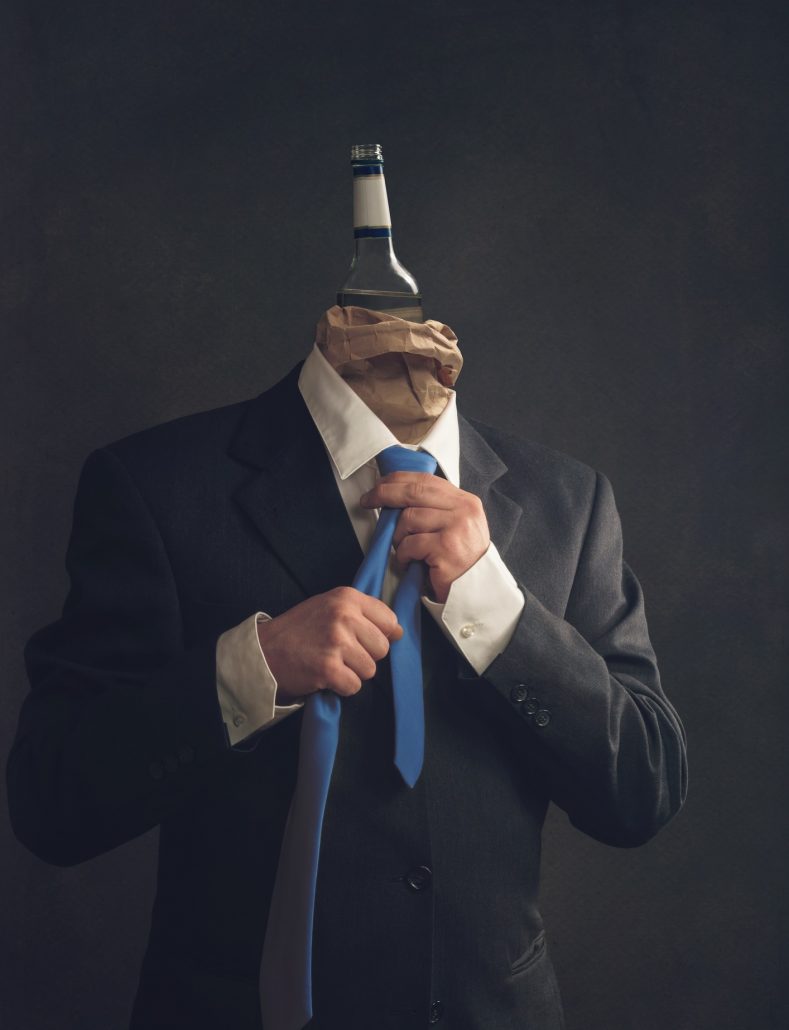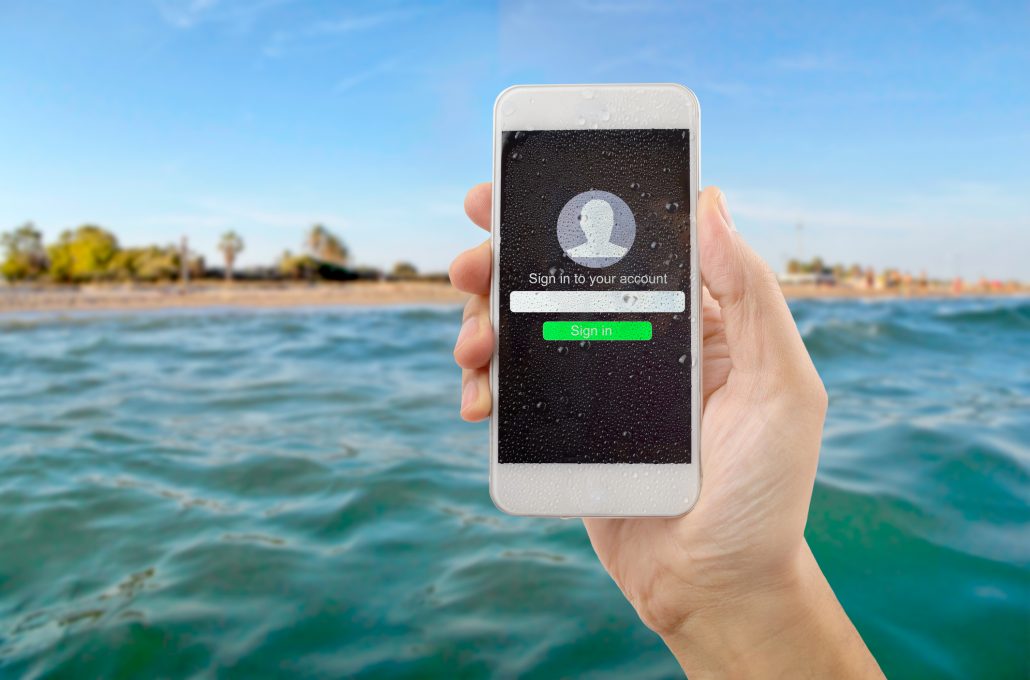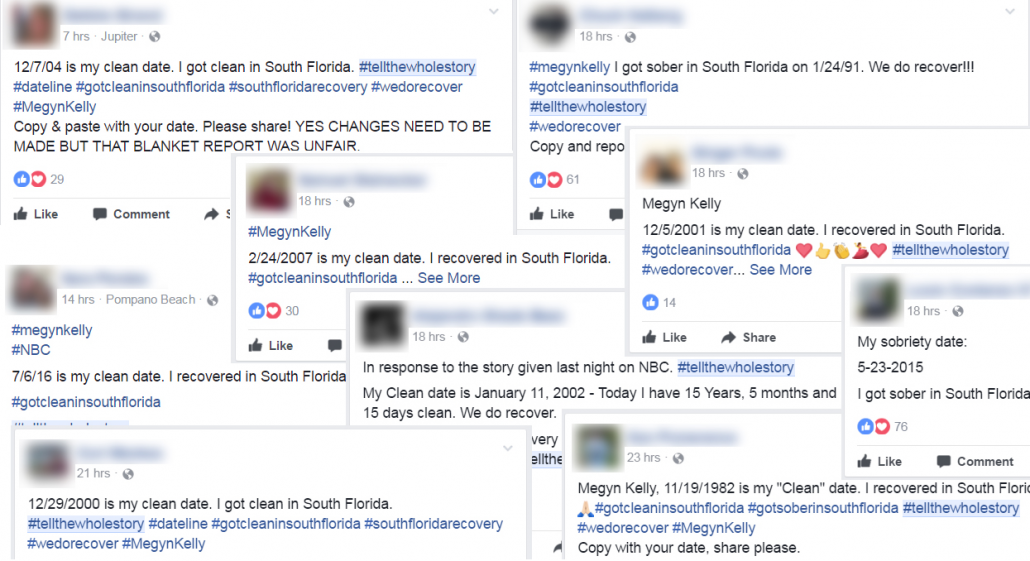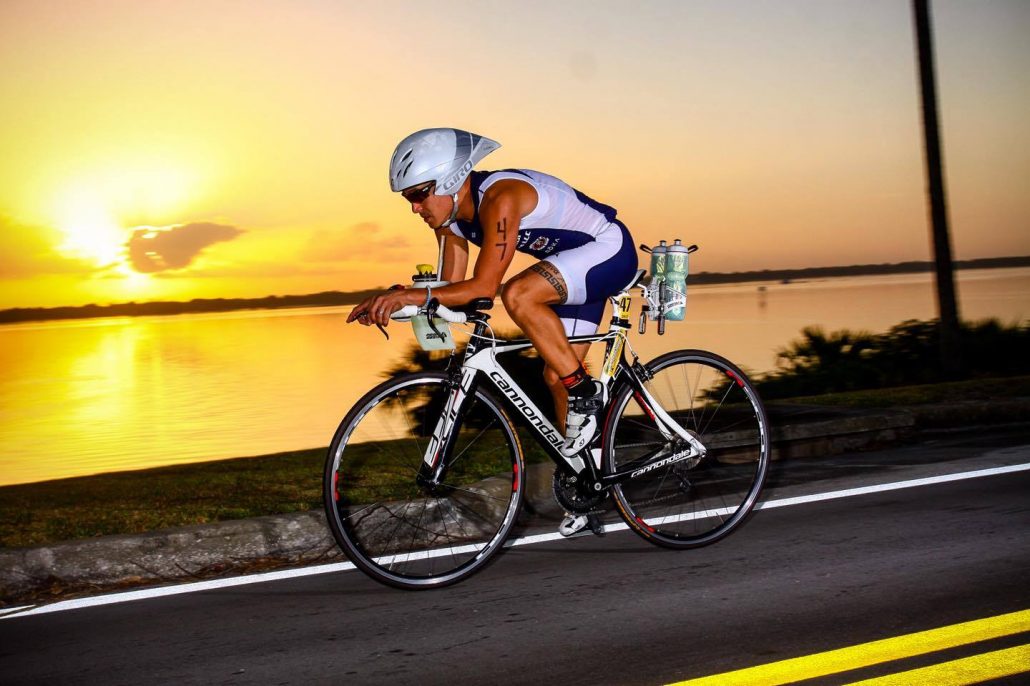by Justin Mckibben | Sep 26, 2017 | Addiction Treatment, Alcohol Addiction, Coping Skills, Outpatient Treatment, Recovery, Relapse, Self Improvement, Therapy

(This content is being used for illustrative purposes only; any person depicted in the content is a model)
Safe and effective treatment for drug and alcohol addiction is paramount to creating lasting transformation in the lives of those who are struggling. Providing powerful therapeutic resources with education and innovation makes a significant impact on those who have the opportunity for quality care. An essential part of this process is an active relapse prevention program.
Relapse prevention is a system that influences many aspects of individual recovery from addiction. So what is a relapse? And what makes a relapse prevention program so indispensable?
Relapse Prevention: What is Relapse?
First, let us look at the most basic definition or relapse. If we break it down a little we can better understand what it means and how it happens.
- In general– a relapse is to suffer deterioration after a period of improvement.
- With medicine– relapse is also referred to as recidivism or a return to a past condition.
- In the context of drug use (including alcohol) – relapse is a reinstatement of drug use and drug-seeking behavior. It is the recurrence of pathological drug use after a period of
So the common thread here is that a relapse is when someone:
- Experiences a period of improvement from a problem…
- Is healing from a previous condition…
- Has a period of abstinence, then they experience a recurrence of the initial problem/condition
With addiction, relapse means someone ends a period of improvement and falls back into drug-seeking behavior or even drug use. When you are recovering from a serious addiction, drinking or consuming a drug can sometimes be referred to as a “slip” but it is essentially a relapse. Many recovery advocates and experts are of the opinion that “recovery” means making improvements to behavior, not just abstinence. Therefore, they might say the “real relapse” actually starts when the behavior regresses to the old destructive or compulsive patterns. Some will warn you that you are in the process of a relapse without having used drugs.
Whether you believe the relapse is the behavior or the actual physical manifestation of using narcotic drugs or drinking, you can still see the real value in offering relapse prevention strategies to help avoid either circumstance.
Relapse Prevention: Knowing the Signs
The following are a few signs or behaviors that might indicate that someone may be in the process of a relapse.
-
Depression
When someone is experiencing low moods and lack of energy they might be in a state of depression. Other mental health disorders may begin to intensify and thoughts of suicide may also occur.
-
Exaggeration
Everyday difficulties that occur regularly become overwhelming. The most basic problems can’t seem to be solved.
-
Avoidance
The individual may begin to avoid social or personal activities they once enjoyed, isolating and ignoring their responsibilities.
-
Defensive
Someone in the stages of relapse may become irritable or even confrontational without reason.
-
Denial
The person may rationalize or minimize any attempt at acknowledging and addressing their behaviors.
-
Post-Acute Withdrawal
When Post-acute withdrawal syndrome (PAWS) sets in someone can be at a higher risk of relapse. They can have trouble with memory, emotional overreactions, and sleeping problems, become accident prone or overwhelmed by stress.
-
Lack of Control
Food, sex, caffeine, nicotine, work, gambling, or other activities become out of control. Their compulsive behaviors become consistent without thinking about the consequences.
-
Feeling of Immobilization
Immobilization is that feeling of desperation. People feel trapped and start to think that there is no way to solve their problems other than using or drinking.
-
Justification
When experiencing cravings someone may convince themselves the only way to feel better is to use or drink, and they try to justify it.
-
Abandoning Support System
If someone is in the stages of relapse they may begin to ignore their support systems. They might stop attending support groups, therapy or communicating with their sponsor or loved ones.
-
Chemical Loss of Control
In a relapse, someone recovering from addiction will eventually begin using drugs or alcohol again to solve problems, even if these problems are only being made worse by their use.
Any combination of these symptoms could mean that someone is headed towards a relapse. In some cases, they may have even relapsed already.
Relapse Prevention
Taking action before someone even comes close to a relapse can make all the difference between lasting recovery and dangerous regression. An effective drug and alcohol treatment plan will include a relapse prevention program in order to help people create a solid foundation from which they can build a sustainable recovery.
Education
Understanding the signs of relapse and the serious risks of going back to drug abuse can help someone who may be struggling in their recovery to stay grounded. It is more difficult for someone to know how to take action, and what kind of action to take if they don’t have an understanding of addiction. Palm Healthcare Company places tremendous value on the importance of education in relapse prevention.
PAWS Awareness
In respect to education about relapse, people should also be made aware of the difficulties they may experience with post-acute withdrawal syndrome (PAWS). When people can anticipate or at least understand the difficulty they may experience with PAWS, they can prepare themselves with healthy and preventative strategies.
Coping Skills
Relapse prevention programs should also teach each individual new coping skills to utilize in challenging times. When someone is struggling with their recovery, they should have resources available to them to keep themselves accountable. It is vital that people be taught new and productive methods for recognizing things that are bothering them and addressing them.
Self-Care
Another huge aspect of protecting yourself from relapse is to establish strong habits that keep you to be as mentally and physically healthy as possible. It can be regular exercise, better eating, social and personal relationships, or pursuing your passion or continuing your career. Find a way to care for yourself so that when your recovery is threatened you care enough about your life to protect it.
Continued Support
Having people that support you can make it easier to overcome adversity when it presents itself. When someone has to deal with their troubles alone they may not always see the whole picture; they may not see all the ways to address the issue. Having a support group or a therapist are just a few ways someone trying to recover from drugs or alcohol can make sure they have a safety net in place.
Palm Healthcare Company believes in helping each individual to create a personal plan for recovery that includes relapse prevention and continued support. Our facilities all emphasize the value of comprehensive education, awareness, coping skills, self-care, and aftercare. The solution to drug and alcohol addiction doesn’t end with eliminating the substance, that is only the beginning.
In the event of a relapse, getting the individual to go into an addiction treatment program can be the best way to help them before things get too bad. Getting them back on the road to recovery is crucial, and be sure to look for a program that has a comprehensive relapse prevention program.
Relapse is NOT necessary for recovery, but relapse prevention is. Even if you or someone you love has relapsed, there is still hope to take action that can help you create lasting recovery. If you or someone you love is struggling, please call toll-free now.
CALL NOW 1-888-922-5398
by Justin Mckibben | Aug 29, 2017 | Addiction, Alcohol Addiction, Drug Abuse, Drug Policy, Inpatient Treatment, Outpatient Treatment, Professionals

With substance use disorder and addiction being such a prevalent problem in America, we think it is crucial for people to understand substance use and addiction as best as they possibly can. Part of looking at which professions have the highest rate of substance use disorder is not just about making people aware of how common it is in the workplace, but also to break the stigma of substance use disorder and show that drugs and alcohol impact people in every workplace, from entry level to executives.
Resources of Substance Use Rates
In April of 2015 the Substance Abuse and Mental Health Services Administration (SAMHSA) released a survey that combined data collected by the National Survey on Drug Use and Health (NSDUH) from every year between 2008 and 2012 to find out which professions held the highest rates of:
The NSDUH assess symptoms of dependence or abuse of alcohol or drugs through a series of questions included in their survey. The questions are based on the criteria described by the fourth edition of the Diagnostic and Statistical Manual of Mental Disorders (DSM-IV). It defines illicit drugs as:
The NSDUH uses the definition of heavy alcohol use of:
- 5 or more drinks on the same occasion
- 5 or more days in the past 30 days
The rating system includes full-time workers from age 18 up to age 64.
Which Jobs Have the Highest Rates of Substance Use Disorder?
In the following categories, number represents the percentage of works out of all those surveyed between 2008 and 2012.
Heavy Alcohol Use
- Mining workers- 5%
- Construction- 5%
- Accommodations/Food Services- 8%
- Arts/Entertainment/Recreation- 5%
- Utilities- 3%
- Wholesale trade- 2%
- Management/Administrative support/waste management- 9%
- Manufacturing- 7%
- Agriculture/forestry/fishing/hunting- 4%
- Retail trade- 0%
- Transportation and warehousing- 8%
- Other services (except public administration)- 5%
- Real estate/rental/leasing- 5%
- Information- 1%
- Professional/scientific/technical services- 7%
- Finance and insurance- 4%
- Public administration- 6%
- Educational services- 7%
- Health care and social assistance- 4%
Illicit Drug Use
The overall rate of illicit substance use among full-time workers, between the age of 18 to 64 years old, who admitted to having used within a month of taking the survey was 8.6% of workers. That may not seem like a lot, but when you consider that is a percentage of ALL professions it is actually a lot bigger than you think.
- Accommodations and food services- 1%
- Arts/Entertainment/Recreation- 7%
- Management/Administrative support/waste management- 1%
- Information- 7%
- Construction- 6%
- Other services (except public administration)- 2%
- Real estate/Rental/Leasing- 9%
- Retail trade- 3%
- Professional, scientific and technical services- 0%
- Wholesale trade- 8%
- Manufacturing- 4%
- Finance and insurance- 5%
- Utilities- 1%
- Transportation and warehousing- 9%
- Agriculture/Forestry/Fishing/Hunting- 7%
- Health care and social assistance- 5%
- Mining- 0%
- Educational services- 8%
- Public administration- 3%
Substance Use Disorder
When it comes to substance use disorder the data is collected for full-time workers from age 18 to 64 that fit the criteria for substance use disorder within a year of taking the survey. The rates of substance use disorder in different professions include:
- Accommodations and food services- 9%
- Construction- 3%
- Arts/Entertainment/Recreation- 9%
- Mining workers- 8%
- Utilities- 5%
- Management/Administrative support/waste management- 4%
- Retail trade-5%
- Agriculture/Forestry/Fishing/Hunting- 5%
- Wholesale trade- 4%
- Other services (except public administration)- 1%
- Real estate/Rental/Leasing- 0%
- Information- 8%
- Finance and insurance- 4%
- Manufacturing- 3%
- Transportation and warehousing- 1%
- Professional, scientific and technical services- 8%
- Public administration- 2%
- Health care and social assistance- 7%
- Educational services- 5%
Different Job Substance Use Trends
When looking at these rankings we can see a few professions that are consistently represented in the top five of all three categories.
NOTE: Remember the top ranks are not based on the overall number of users, but on the percentage of the total industry.
#1 in Heavy Alcohol Use– Mining Workers
121,000 mining workers that were surveyed contributed to the top ranking percent in an industry for heavy alcohol use. This number may seem small compared to the high numbers of heavy alcohol use in other professions. But think of it like this- If there are:
- 100,000 nurses and 70 of them drink heavily
- 100 miners and 70 of them drink heavily
Which would you think it a bigger issue?
#1 in Illicit Drug Use– Accommodations and food services
Accommodations and food services came in as the top rated profession for illicit drug use. According to the numbers of all those in this industry measured, approximately 1,169,000 were recorded for illicit drug use within a month of the survey.
This statistic does not change when accounting for gender or age differences. What this suggests is there may be something unique about this industry and how people end up using drugs more often working in accommodations and food services more than anywhere else.
#1 in Substance Use Disorder- Accommodations and food services
In terms of substance use disorder the accommodations and food services industry again come in at the top of the list. This time, the numbers of those surveyed shows that approximately 1,038,000 people in this profession actually fit the criteria from the DSM-IV for substance use disorder.
But unlike with illicit drug use, this rating did not stay the same when adjusting for age or gender differences. So what does that mean?
It means the higher rates of substance use disorder in the accommodation and food industry depends on the demographics employed in that industry. For example, if you look at age:
- 18-25 years old this industry is number 2
- 26-34 years old its number 1
- 35-49 years old this industry is number 3
- 50-64 years old its only number 11
So What Jobs are the Worst for Substance Use Disorder?
The big thing here is we must acknowledge that there are variables like age and gender that actually will make a big difference as to which jobs are ‘worse for substance use disorder’, while also recognizing the issue of substance use and addiction is not one size fits all. It is a different story for every individual. There is a formula that takes environment into account, but that formula is not the same for everyone.
A young woman working in the accommodations and food services industry might have a harder time staying off drugs than she might as a school teacher… or maybe not. Young men working in social assistance might find it a lot easier to stay off of drugs than one working in construction. It isn’t a guarantee, but it is a trend we can note.
So, does your job put you in an industry with higher rates of drinking, drug use or addiction? Are you more likely to have co-workers or employees that struggle with substance use than in another position?
With data like this we have to ask- does the job make an impact?
When we consider how central our jobs are to our everyday lives, we should take into account what kind of workplace we put ourselves in and what we have to offer. It is the same thing for those of use trying to work toward recovery. Substance use disorder recovery can be a lot of work, but it is definitely worth the livelihood you stand to gain from it. If you or someone you love is struggling with substance abuse or addiction, please call toll-free now.
CALL NOW 1-888-922-5398
by Justin Mckibben | Jun 28, 2017 | Addiction Treatment, Alcohol Addiction, Inpatient Treatment, Internet, Social Media, Stigma

When news travels at the speed of social media there isn’t much of a waiting period for responses to issues that strike a nerve with people. As we were writing and publishing our first response to the story aired by the NBC News Investigation host Megyn Kelly, along with other media outlets such as The New York Times, a fire was catching that lit the internet up.
While we already wrote a response to the Megyn Kelly piece, we wanted to also highlight the amazing response from the recovery community!
The Megyn Kelly story was focused on exposing the fraud and corruption that has infiltrated the addiction treatment industry in South Florida, utilizing interviews with local law enforcement, first responders, politicians and victims of patient brokering and illegitimate sober homes. While it may have been an eye-opener to some in other states, this wasn’t news to the population of South Florida. These tragedies and indiscretions have been talked about for years now. The topic is still causing contention and debate within the community.
However, when the piece aired just this past weekend, many of South Florida’s recovery community set aside much of the debate to answer what was being said.
South Florida Recovery on Social Media
Facebook turned into a major platform yesterday as new hashtags went viral, including:
- #Igotcleaninsouthflorida
- #tellthewholestory
- #southfloridarecovery
- #wedorecover
A huge number of these posts were attached to personal stories of suffering, recovery and astounding accomplishments. Others were attached to photos. Many posts demanding that the media acknowledge the voice of the actual people in the South Florida recovery community. Most of the posts included people sharing their sobriety dates (meaning the day they finally stop drinking or using drugs).

Photo: Facebook posts responding to Megyn Kelly
There is a clear message here- the South Florida recovery community is strong and willing to take a stand.
This profound and inspiring response has been completely organic. One after another people from many areas, especially Delray Beach, started sharing their experience with treatment and recovery in South Florida. Megyn Kelly was tagged in these posts, so surely her social media team got pretty busy sifting through all those notifications.
Some were from people with several months clean and sober, other posts were people with a couple decades of recovery time. There were those who came to Megyn Kelly’s defense, while others took the whole thing as an opportunity to attack her… or the people responding to the story. Still, the presence of South Florida’s own population of people overcoming addiction was making a lot of waves.
The Megyn Kelly Conversation
One thing we should acknowledge about the piece on Megyn Kelly’s show… is it worked.
Granted the camera and narration do not paint the most flattering picture, but it revitalizes an important conversation- safeguarding the addiction treatment industry in South Florida. It worked because we can at least take something from it; the South Florida treatment industry needs to work together with community leaders, officials and people in recovery in the area to help make things better.
However, people in the recovery community did take offense to statements made by people during interviews that implied people were not coming to South Florida and getting better. It might not feel fair to a lot of people who thrive in South Florida’s recovery community that they felt marginalized or misrepresented. Some of the comments suggest that people sent to Florida are more likely to end up dead than they are to end up better, but there seems to be a lot of people with something to say about that.
After hearing the Megyn Kelly story the recovery community in South Florida chose to take the opportunity to stand up for one another. Overnight there was an up-welling of support for those who have come to South Florida, made a life for themselves after treatment and become active members of the community.
It’s About the People
More importantly, this is all about the people who have recovered and the people who are most desperate for it. We want people to know that there are unethical and illicit businesses in every state that exploit this same system, but there are world-class addiction treatment programs in South Florida that take great pride in being part of the solution, not the problem.
This is about the people who have changed their lives, acknowledging their strength, hope and adversities. It is about the people who want to believe that there is a safe place with people who care about improving themselves and each other. We have to let people know what to look for, how to ask the right questions and how to make educated decisions on how to best treat them or their loved ones.
For a more detailed look into the difference between addiction treatment programs and sober living facilities, download our FREE e-book:
5 Critical Mistakes When Picking a Treatment Center and How to Avoid Them
DOWNLOAD FREE E-BOOK
We are proud of how the recovery community of South Florida has responded to the Megyn Kelly story. Part of fixing the issues facing people with addiction is to strip away the stigma of substance use disorder, and a keystone to fixing the stigma is education and awareness. South Florida stood up and told the world #wedorecover because they know if we #tellthewholestory then the entire nation may see that addiction treatment is about healing and helping people together.
South Florida recovery set social media on fire a few nights ago… because South Florida recovery is full of absolutely amazing people too! Imagine if we did that all the time! Imagine if we took it upon ourselves to make this happen every chance we got! Who might get the help they need because of what we share?
My name is Justin Mckibben
My sobriety date is November 28th, 2013
#igotsoberinsouthflorida
Every recovery community has its faults, but the recovery community of South Florida is an amazing place to start your journey to change that could save your life. If you or someone you love is struggling, please call toll-free now.
CALL NOW 1-888-922-5398
by Justin Mckibben | Jun 23, 2017 | Alcohol, Alcohol Addiction, Alcoholism, Binge Drinking, Detox, Fitness, Sports

Recently Jeff Salinas, an Alumni from our Palm Partners facility contacted our Alumni department with some exciting news; on the road to recovery he hit the ground running, and soon will be competing in a triathlon, but it isn’t his first since he took off from the starting line he got while in treatment. Jeff shared with us an article written about his awesome new ambition on Florida Today, in which he was quoted saying
“Triathlon saved my life,”
Coming up Sunday, July 25th is the fifth annual Indialantic Boardwalk Triathlon. This is Jeff’s next giant leap on the road of transformation and recovery. The report shares that Jeff has become a regular to the local triathlons, as much as possible, while also competing in local foot races. According to Jeff, all this athletic action is more than just a sport; it has made a lasting imprint on his life, especially in recovery from alcoholism.
At 43 years old, this powerful example of passionate self-improvement has always been an athlete, even before turning his life around. However, when he spoke with journalists about his new competitive edge, he shared how the decision to clean up his act gave him a breathtaking second wind.
“In 2013, 2014 and 2015, I struggled really badly with alcoholism,”
“I finally battled those demons in 2015 … And then I trained for an Ironman triathlon. I made some life-changing moves, and to maintain them, I committed myself to the Ironman Florida Triathlon in Panama City.”
Jeff has been running a long time. Before, you may have said he was running from something. Today, however, it looks more like he’s running toward a better, brighter future.
Functioning Athlete/Alcoholic
Jeff has finished 7 marathons, and in 2013 he decided to try on a triathlon. Of course by his timeline, he was still actively drinking. Apparently he was able to put off drinking during triathlons and compete well enough.
It would appear that looking at the face value, one might categorize Jeff as a “functioning alcoholic”. He was working after moving with the company from San Diego. Jeff was providing for his wife Alpha and daughter Athena, not to mention caring for four dogs and staying active. Yet despite all the running, his drinking was catching up to him and gaining fast. When the question came in regards to if his drinking impacted his family, Jeff states in the interview:
“Bigtime. They’re the ones who got me into recovery. The most important thing is that you have to want it. You don’t go to make someone happy or because it is a good idea … You’ve got to do it for yourself; you have to make those life-changing decisions yourself. I had to ask myself, ‘Am I an addict or an athlete?’ ”
Jeff was put on a new track, with a new gym and new trainers who were ready to run a different kind of race with him; a race toward transformation.
Holistic Healing
Jeff Salinas found his way to Palm Partners, a Palm Healthcare facility that specializes in the treatment of people struggling with substance use disorder and dual diagnosis. In treatment Jeff found himself among recovering individuals of every economic and social background. While in treatment at Palm Partners Jeff experienced some of the most effective and innovative holistic methods, including personal trainers, exercise, good nutrition and yoga classes. Palm Partners and all Palm Healthcare facilities are designed to address every element of physical, emotional and mental recovery to help create lasting change. When asking Jeff about his experience with Palm Partners, and he wrote:
I remember during one of the classes in Palm Partners, we were to think of some kind of short term goal to have us look forward to in order to maintain our sobriety post Palm Partners. I always did want to participate in an Ironman Race Triathlon, which is a 2.4 mile swim, 112 mile bike ride followed by a 26.2 mile run. I thought, I can do this..
While in Palm Partners, this seed was planted. After coming home and maintaining my sobriety , the “Pink Cloud” eventually wore off, and I was starting to get depressed again and lose my momentum in my drive of wanting to stay sober. Then I remembered about the Ironman that I always wanted to do. So I did what I could to sign up for that race which was a year prior to the event. And from there, what’s in the FL Today article did follow suit.
I honestly do value the teachings and classes in PP. And it’s all relative, it doesn’t have to be triathlon or running, but it’s that internal driving force we had since our youth of purity, but somewhere along the timeline of growing up we lost it through addiction. Palm Partners helped me rekindle that fire inside me that almost went out. And, I’m forever greatful…
Becoming an Ironman
After finding himself back in the present, Jeff said:
“In Delray, I took everything in and really determined that I wanted to change… And so I committed to triathlon.”
Jeff credits the structure and strict training the sport demands to much of his attraction to it. The training requires a great deal of focus and dedication to practicing the three specific forms, leaving not much energy for the thought of drinking. In his interview with Florida Today, Jeff states:
“I committed to a seven-month training plan for the Ironman and fitted it around work and my personal schedule,”
“I tried to do (recovery) meetings, but that wasn’t what I needed. Instead, I’d show up for training and then go home and feel spent. It has been showing up for training that has helped me change.”
Last November in Panama Beach Jeff reached a milestone in his journey to a more fulfilled life. Jeff went on to say,
“I knew my mission was over once I crossed that line, when the commentator announced, ‘Jeff Salinas, you are an Ironman!’ ”
Alpha and Athena supported Jeff through every step of this race; from the decision to enter treatment and then to crossing the Ironman finish line.
Staying on the Path
Jeff has run in:
- Pineapple Man Triathlon
- Boardwalk Triathlon
Jeff has also qualified for and finished the Florida Triathlon, and is a member of the Donner Wealth Management Triathlon Team.
So what is next for the Palm Partners Alumni?
According to the report his new goal to finish the big race this Sunday in an hour, 10 minutes (give or take) to break his own record. After that- qualify for the Boston Marathon which he would like to do in November’s Space Coast Marathon.
One thing Jeff says during the interview that speaks volumes to his commitment to change is when talking about the race after-parties. Most of the events have food after, and beer is a common addition. Apparently the race community has plenty of it to go around. But in Jeff’s words,
“Well good for them. But not for me. Not for me.”
Jeff Salinas will be putting his passion to the pavement at the Indialantic Boardwalk Triathlon this Sunday, June 25th at 7 AM. The event takes place in Nance Park, 100 Miramar Ave., Indialantic. The event is for the benefit of Candlelighters of Brevard in Indian Harbour Beach.
We are happy to cheer for our Palm Partners Alumni, especially when they are sharing how passion, dedication and transformation make such amazing things possible. Jeff Salinas is a moving example of how willingness and action can change your life. On the road to recovery, Jeff is truly a trailblazer. If you or someone you love is struggling with substance abuse or addiction, please call toll-free now.
CALL NOW 1-888-922-5398






